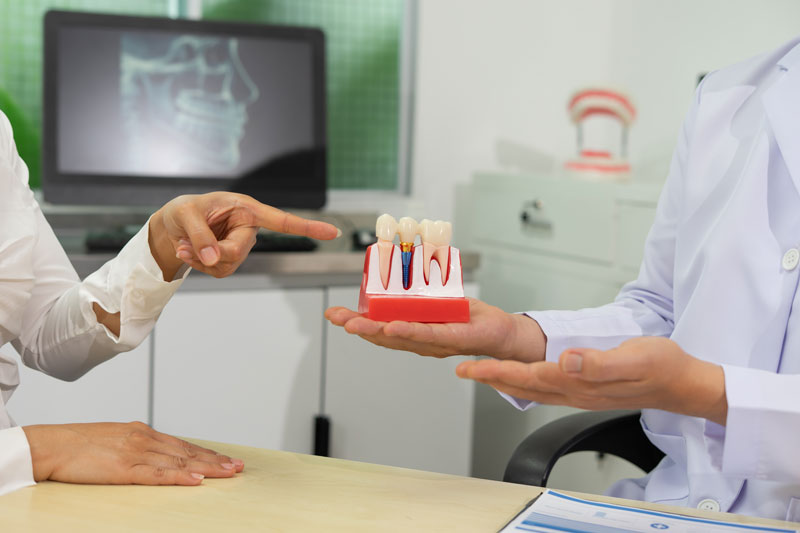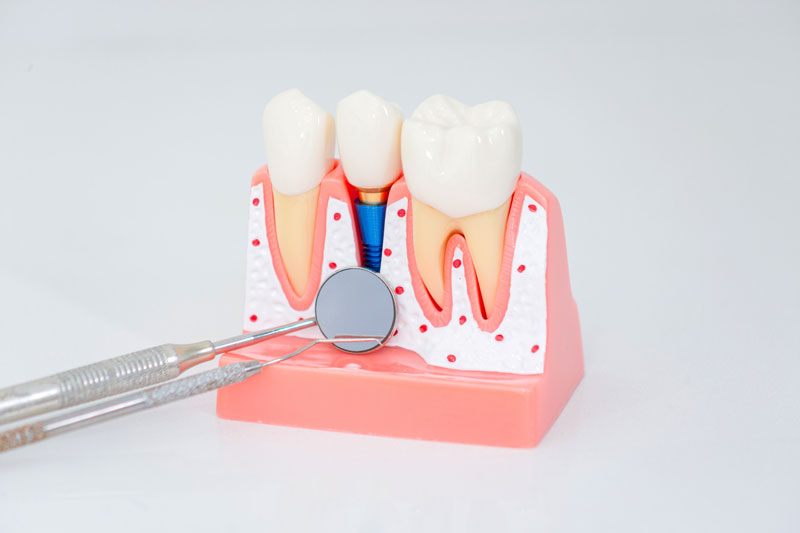Dental implant metal plays a crucial role in modern implant dentistry, providing a strong and stable foundation for artificial teeth. As technology advances, understanding the materials used in dental implants becomes essential for both doctors and patients alike. These metals must withstand the constant pressures of biting and chewing, ensuring the dental implant’s longevity. Furthermore, they must integrate effectively with the jawbone, an essential factor for long-term success. This integration, known as osseointegration, is pivotal in maintaining the implant’s positioning and functionality over time. The choice of dental implant metal, therefore, directly impacts the overall effectiveness of dental restorations. Understanding what dental implant metal entails involves exploring the materials specifically selected for their unique properties. Often, the decision to use metals is based on their strength, compatibility with biological tissues, and resistance to corrosion. These metals need to be non-toxic and must not react adversely with body tissues. This ensures that the patient experiences comfort and functionality without the worry of metal reactions. As a cornerstone of implant dentistry, the metal used can influence both the procedure’s success and the patient’s satisfaction. Therefore, becoming informed about these materials can be incredibly beneficial for informed decision-making. Exploring Diverse Implant Material Options One of the most common metals used in dental implants is titanium, renowned for its strength and biocompatibility. It’s favored due to its ability to fuse with bone over time, leading to successful and stable long-term results. Titanium alloys provide added benefits, offering enhanced durability and a reduced risk of fracture. Alternatives such as zirconia represent a growing interest, particularly for those prioritizing metal-free options. This ceramic material, while distinct in composition, offers similar stability and is valued for its aesthetic appeal. The selection amongst these materials largely depends on individual needs and specific health considerations. Each material comes with its own set of pros and cons, influencing the final decision patients and their doctors make. Titanium, for instance, is excellent for durability but might not be suitable for patients with specific metal sensitivities. Zirconia, while appealing to those sensitive to metals, may come with its own aesthetic and functional considerations. It’s crucial for patients to consult with their dental providers to weigh these factors accurately. The decision ultimately aligns with patient preferences, clinical scenarios, and long-term health objectives. Additionally, understanding these material properties aids in managing expectations and optimizing implant surgery outcomes. The Impact of Metal Choice on Implant Longevity The choice of metal in implants is a major determinant in their lifespan and overall success. Correct metal selection promotes effective integration with the bone, enhancing the implant’s durability and capacity to handle daily wear. For most patients, titanium has served as a gold standard, offering reliable success rates and minimal complications. Its properties ensure that the structural integrity of the implant remains uncompromised over extensive periods. On the other side, advances in ceramics like zirconia continue to offer valuable alternatives with promising results. Each type of material ensures a versatile approach to meeting varied patient needs and expectations. Longevity isn’t merely about durability; it’s about achieving a natural look and feel that lasts. The aesthetic demands can greatly influence metal choice, impacting the patient’s confidence in their dental restorations. Patients who opt for metal-free options may prioritize zirconia for its natural tooth appearance and ability to complement existing teeth. Meanwhile, the robust nature of titanium ensures functionality which is equally pivotal. Ultimately, selecting the correct implant metal emphasizes balancing both practical needs and desired cosmetic outcomes. Such thoughtful consideration plays a significant role in patient satisfaction and long-term oral health success. Advances and Innovations in Implant Metal Technology Recent innovations in implant metal technology have continually enhanced patient outcomes, paving the way for robust and effective dental implant solutions. With ongoing research, materials are now being developed with properties that further increase their strength and integration capabilities. For instance, coating advancements on titanium have improved its bonding with bone, reducing healing times and providing a more secure fit. On the frontier of these advancements are new metal composites that may offer reduced risks of infection along with anti-corrosive characteristics. Research continues to drive the possibility of more patient-specific implant materials, optimizing treatment plans. At Signature Smiles, we understand the importance of choosing quality implant materials for long-term success. By prioritizing innovative dental solutions, we leverage state-of-the-art technology to offer top-notch care. Whether you’re considering traditional titanium implants or newer zirconia alternatives, our practice is equipped to cater to your unique needs and preferences. Are you ready to restore your smile at our skilled and trusted dental practice? Don’t wait to get the smile of your dreams with us. Get in contact with our doctor, Dr. David Shirinian and our exceptional team at our practice to schedule an appointment today!
Full Mouth Implants: A Complete Guide to Dental Restoration and Smile Revitalization
Full mouth dental implants are an innovative solution for those seeking comprehensive dental restoration and smile revitalization. These implants replace missing or damaged teeth across an entire arch, providing a natural-looking appearance and restoring full functionality. The science behind full mouth implants involves embedding titanium fixtures into the jawbone, which then fuse with the bone to create a strong and permanent foundation for artificial teeth. This modern technique allows patients to regain not only their smile but also their ability to chew and speak effectively. Furthermore, full mouth implants are tailored to everyone’s unique oral structure, ensuring a customized fit and enhanced aesthetics. With their durability and life-like visual appeal, full mouth implants have transformed countless smiles, making them a popular choice for complete dental overhaul. As dental science continues to advance, the materials and techniques used in full mouth implant procedures have evolved, offering improved outcomes. For those who have lost teeth due to various reasons such as decay, trauma, or disease, full mouth implants provide a comprehensive solution that transcends traditional dentures. This approach addresses not only cosmetic needs but also functional aspects, crucial for overall oral health. Patients benefit from the convenience, as implants are permanently placed and do not require removal like dentures. The stability offered by these implants prevents jawbone loss and supports facial structure, contributing to a youthful appearance. Moreover, full mouth implants offer a direct connection between crown and root, simulating natural teeth closely. As a result, they are increasingly viewed as the gold standard for tooth replacement in modern dentistry. Determining Suitability for Full Mouth Implants Determining candidacy for full mouth implants involves evaluating several factors that influence suitability. Ideal candidates are those with sufficient jawbone density, as this provides the necessary support for the implants. However, advancements in dental techniques mean that even patients with minimal bone density may be considered, thanks to bone grafting procedures. Additionally, prospective patients must commit to maintaining good oral hygiene and attending regular follow-up appointments to ensure the longevity of their implants. It’s also essential for candidates to have overall good health, as untreated health issues can complicate the healing process. Beyond physical considerations, patients should have realistic expectations and a positive outlook to ensure satisfaction with the results. Furthermore, full mouth implants are beneficial for individuals who are currently using ill-fitting dentures or those who have multiple missing or damaged teeth. The process of qualifying for this treatment often starts with a thorough dental examination, alongside imaging tests such as X-rays or 3D scans to assess the jaw structure. Once suitability is confirmed, a personalized treatment plan can be developed, considering the individual needs and desires of the patient. It’s crucial that patients understand the commitment required for the treatment’s success, including adhering to all pre and post-operative instructions provided by the dental team. By setting clear expectations and personalized plans, patients are better prepared for the transformative journey that full mouth implants offer. Navigating the Full Mouth Implant Procedure The journey to achieving a revitalized smile with full mouth implants involves several critical stages. It begins with a comprehensive consultation and assessment, where a thorough examination identifies oral health needs and biomedical compatibility. This is followed by a detailed treatment plan, customized to address both functional and aesthetic goals. The implantation stage is next, where titanium posts are strategically placed into the jawbone and allowed time to integrate securely, a process known as osseointegration. This stage is vital for ensuring the implants’ stability and long-term success. After the healing period, which can vary between patients, the final restoration occurs, attaching prosthetic teeth that blend seamlessly with natural dental characteristics. Patients must understand the importance of each step, as each contributes to the overall success of the procedure. The timeline for this process varies, with faster integration possible with advanced treatment options. Throughout the procedure, patients are supported with careful guidance from their dental team, dedicated to minimizing discomfort and optimizing outcomes. Such support includes pain management strategies and regular check-ups to monitor progress. As a non-removable solution, full mouth implants provide exceptional comfort and ease of care post-procedure. Dental professionals are committed to ensuring that every stage of this journey is as smooth as possible, resulting in a confident and transformative smile. The SIGNATURE SMILES DENTAL GROUP Advantage in Dental Restoration The innovative technologies we employ are crucial for a seamless treatment experience, but it’s our commitment to expert care that truly defines SIGNATURE SMILES DENTAL GROUP. Through continuous professional development, our practitioners stay updated with the latest advancements in implantology. This dedication enables us to offer not just treatment, but a journey of transformation for our patients. With a focus on outcomes that meet both functional and aesthetic desires, full mouth implants at our practice are designed to exceed expectations. Are you ready to restore your smile at our skilled and trusted dental practice? Don’t wait to get the smile of your dreams with us. Get in contact with our doctor, Dr. David Shirinian, and our exceptional team at our practice to schedule an appointment today!




